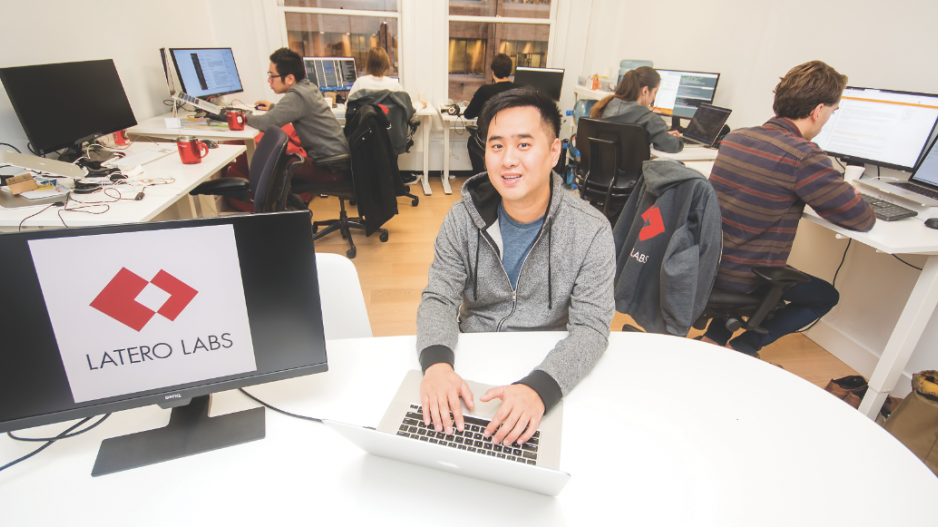The technological trail linking pizza delivery and social work in B.C. isn’t obvious.
Six months ago it would have been inconceivable for a local startup known for developing a food-delivery app to get a shot at offering services to a provincial ministry.
“With a smaller, newer consulting firm, usually the government or larger RFPs [requests for proposal], they require a certain minimum and/or certain amount of people on staff,” said Latero Labs co-founder Derek Yau, whose clients include Panago Pizza.
“It’s very difficult for a smaller firm to get noticed.”
So to get noticed, Latero began donating time and resources over the summer to the Ministry of Children and Family Development (MCFD). The company did so through the province’s Startup in Residence (STIR) pilot program, modelled after a project San Francisco launched in 2014.
The B.C. pilot started last spring under the previous BC Liberal government after former premier Christy Clark promised to reduce roadblocks smaller firms faced in the government procurement market. Although it might make sense for governments to look in their own backyard for tech services, B.C. startups have complained that local governments often overlook them.
Matt Toner, CEO of Biba Ventures Inc., said words from a friend are always ringing in his head when trying to procure local government contracts: “It’s hard to be a prophet in your own town.”
His Vancouver company offers location-based mobile gaming using augmented reality to encourage children to be more active on playgrounds through games, challenges and puzzles that their parents referee with their smartphones.
Biba has launched 1,000 smart playgrounds globally.
“But we literally can’t get arrested in Vancouver,” Toner said. “We’ve spent three years of approaching the city in different ways. Formally, informally, and with nothing back.… We’re crushing it every place but here.”
For STIR’s first phase, which Biba did not participate in, ministries compiled a list of problems in day-to-day operations in need of a technological solution.
STIR applicants then made proposals to partner with the ministries with hopes of landing a contract in the second phase.
Six B.C. tech companies have worked on five government projects during the first 16-week phase.
They include:
•Big Bang Analytics and the Ministry of Education: a project to access and analyze information more easily, such as identifying students at risk of not graduating.
•Purpose Five and the province’s Digital Experience Division: creating a tool to track government services.
•Arkit and the Ministry of Forests, Lands, Natural Resource Operations and Rural Development (FLNR): create a way to provide better access to information on land-use planning.
•Design + Environment and App-Scoop, and FLNR: provide digital literacy training for public servants.
In Latero’s case, Yau met with MCFD officials about once a week to develop ideas and create a product to help social workers find homes for children in care.
The pilot went well enough that Latero Labs and the MCFD are in discussions for a paid contract to further develop and maintain the digital tool.
Meanwhile, B.C. Jobs, Trade and Technology Minister Bruce Ralston told Business in Vancouver that a government contract for a small tech startup is a powerful reference letter for future business.
“To bring in startup companies and match them with those pain points and then begin to fashion solutions, I think, is really, really helpful to the overall effectiveness of government and its ability to better serve citizens,” he said. “The ability to scale this program is something that we’ll think about.”
@reporton



